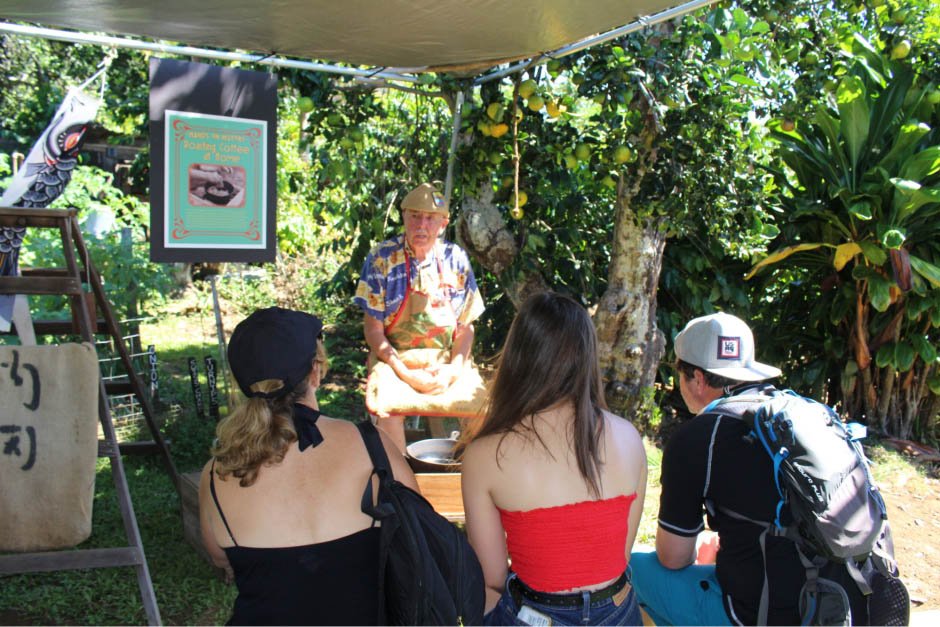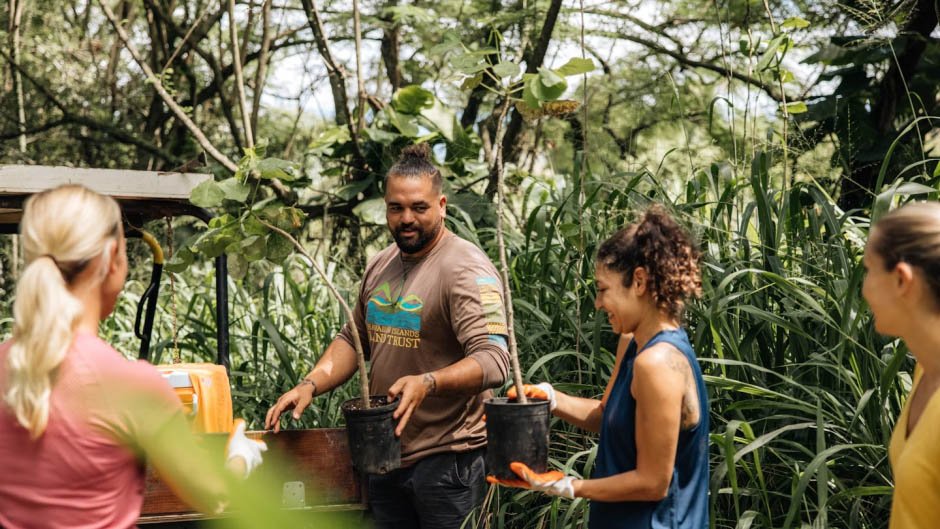Volunteering is often seen as an act of kindness—something people do to help others or contribute to a cause they care about. While it’s true that volunteers benefit communities and those in need, what’s sometimes overlooked is how much the volunteers gain from the experience. Numerous studies have shown that giving back has significant mental, emotional, and even physical health benefits. In this article, we’ll explore why volunteering is not just about altruism; it can also be a powerful tool for personal well-being.
1. The Health Benefits of Volunteering: Why Giving Back is Good for You – Boosts Mental Health
One of the most immediate benefits of volunteering is its positive effect on mental health benefits. When people volunteer, they engage in meaningful activities that help shift their focus from their own stresses and worries to the needs of others. This redirection can offer relief from anxiety, depression, and other mental health issues. The sense of purpose and accomplishment gained from helping others can significantly elevate one’s mood and sense of well-being.

a. Reduces Stress and Anxiety
Volunteering has been shown to reduce stress by giving individuals an opportunity to step away from their routine and focus on a cause they find meaningful. When we help others, our bodies release a hormone called oxytocin, sometimes referred to as the “love hormone.” Oxytocin counteracts the effects of cortisol, a stress hormone, promoting feelings of calm and reducing anxiety. For people struggling with anxiety disorders or chronic stress, regular volunteering can be a helpful form of therapy, significantly benefiting both physical and mental health.
b. Decreases Risk of Depression
Volunteering can also be a powerful antidote to depression. One reason is that it helps combat loneliness, a major factor contributing to depression. Social connections are integral to mental health, and volunteering often brings people together for a common purpose, offering opportunities to meet new people and form meaningful relationships. The regular interaction with others, coupled with the sense of contributing to a greater good, can lift a person’s mood and reduce feelings of isolation, which are key contributors to depression. Community service platforms and organizations connect volunteers with both local and international opportunities, allowing individuals to contribute their time and skills in various service areas.
c. Improves Self-Esteem and Life Satisfaction
Many volunteers report a boost in self-esteem as a result of their service. Knowing that your actions have a positive impact on others can increase your confidence and sense of worth. This heightened sense of self-value translates into greater life satisfaction, providing individuals with a renewed sense of purpose and fulfillment. Volunteers often feel more connected to their communities, which further enhances their sense of belonging and well-being. Additionally, volunteering helps individuals develop valuable skills that contribute to self-esteem and life satisfaction.
d. Provides a Sense of Purpose and Fulfillment
Volunteering can provide a profound sense of purpose and fulfillment, especially for older adults. Engaging in volunteer activities offers individuals the opportunity to feel needed and valued, which can be particularly important during times of transition or loss. Research has shown that volunteering can significantly increase life satisfaction and self-esteem, helping to alleviate symptoms of depression and anxiety. By contributing to their communities, individuals often find a renewed sense of purpose and a deeper connection to those around them, enhancing their overall mental health and well-being.
e. Increases Confidence and Self-Awareness
Taking on new challenges and responsibilities through volunteering can significantly boost confidence and self-awareness. As individuals navigate different volunteer positions, they develop a greater sense of self-efficacy and confidence in their abilities. Volunteering also provides a unique opportunity for self-reflection, allowing individuals to align their actions with their values and goals. This increased self-awareness not only enhances personal growth but also positively impacts professional and personal relationships, contributing to a more fulfilling life.
2. Physical Health Benefits

While the mental and emotional benefits of volunteering are well-documented, the physical health advantages are equally compelling. Studies have shown that people who volunteer experience lower rates of heart disease, chronic pain, and other health conditions. The physical health benefits of volunteering seem to stem from the psychological benefits as well as the physical activities involved in many volunteer opportunities. Volunteering at a community garden, for instance, not only enhances community connections but also contributes to personal fulfillment and a healthier lifestyle.
a. Lowers Blood Pressure
Volunteering has been linked to lower blood pressure, which is crucial for maintaining cardiovascular health. According to a study by Carnegie Mellon University, adults over the age of 50 who volunteer on a regular basis are less likely to develop high blood pressure. High blood pressure is a significant risk factor for heart disease, stroke, and other chronic illnesses. By reducing stress, increasing social connection, and offering physical activity, volunteering can help keep blood pressure in check. Additionally, high school students who volunteer in after school programs have shown significant improvements in their health metrics, including lower blood pressure.
b. Increases Longevity
One of the most compelling reasons to volunteer might be its association with increased life expectancy. Several studies suggest that volunteers tend to live longer than those who do not engage in such activities. The increased longevity is believed to be linked to a combination of improved mental health, reduced stress, and better physical health. Volunteering keeps people active, engaged, and socially connected—all of which are known factors that contribute to a longer, healthier life.
c. Promotes Physical Activity
Many volunteer opportunities, such as building homes, cleaning parks, or organizing community events, involve physical activity. Even lighter activities like walking dogs at an animal shelter or delivering meals can help people stay active. Engaging in these activities contributes to improved physical health, including better mobility, muscle strength, and cardiovascular fitness. Additionally, staying physically active can reduce the risk of diseases such as diabetes, obesity, and arthritis.
3. Enhances Social Connections

Social isolation has become an increasing issue, particularly in today’s digital age where face-to-face interactions have diminished. Volunteering offers a way to combat social isolation by providing regular, meaningful interactions with others. Many volunteer opportunities require teamwork, communication, and collaboration, all of which foster social bonds. Whether you’re working at a food bank, participating in community cleanups, or mentoring youth, the social interaction inherent in these activities can enhance your sense of connection to others. Additionally, volunteering can strengthen existing relationships by engaging in shared activities, deepening connections within the community, and fostering a broader support network based on common interests.
a. Builds Community
When people volunteer, they become more connected to their communities. This sense of community fosters feelings of belonging and mutual support. People who volunteer often feel more invested in their surroundings and develop a deeper sense of empathy for others in their community. Volunteering can also expose individuals to diverse perspectives and help them develop a more inclusive, compassionate view of the world.
b. Fosters Friendships
Volunteering provides a structured way to meet people who share similar values and interests. Many long-lasting friendships have been formed through shared volunteer work. These relationships can provide emotional support, camaraderie, and a sense of belonging that enhances overall well-being. For people who are new to an area or looking to expand their social circles, volunteering can be an excellent way to meet like-minded individuals.
c. Combats Loneliness in Older Adults
For older adults, loneliness and social isolation are significant health risks that can lead to conditions like depression, cognitive decline, and even early mortality. Volunteering offers a way for older adults to stay socially engaged and maintain a sense of purpose. Programs like senior volunteer initiatives provide opportunities for older adults to contribute their time, skills, and wisdom, while also forming new social connections that keep them engaged and mentally active.
4. Develops New Skills and Improves Career Prospects

Volunteering is also a great way to learn new skills or sharpen existing ones. Many volunteer opportunities offer training and hands-on experience in fields like event planning, fundraising, communication, leadership, and more. These skills are not only useful for personal development but can also improve career prospects. Finding a suitable volunteer position that aligns with your personal skills and goals can further enhance these benefits.
a. Improves Job Prospects
For those looking to enhance their resumes or change career paths, volunteering offers an opportunity to gain valuable experience. Employers value candidates who have demonstrated a commitment to their communities and have honed essential skills through volunteer work. In some cases, volunteering can even lead directly to job offers or professional networking opportunities that open doors to new career possibilities.
b. Enhances Leadership Skills
Many volunteer roles involve leadership or team management, which can help develop critical leadership skills. Organizing events, leading a team of volunteers, or coordinating community efforts require individuals to communicate effectively, manage time, and solve problems. These experiences build valuable leadership skills that are transferable to many areas of life, both personally and professionally.
c. Enhances Emotional Intelligence
Volunteering can also enhance emotional intelligence, which is the ability to recognize and understand emotions in oneself and others. By engaging in volunteer activities, individuals can develop a greater sense of empathy and compassion for others, and can learn to navigate complex social situations. Volunteering can also provide opportunities for individuals to develop their communication and interpersonal skills, which are essential for building strong relationships and achieving personal and professional success.
A Win-Win for Everyone

Volunteering is a powerful way to give back to your community, but the benefits extend far beyond the act of service itself. By improving mental health, enhancing social connections, and promoting physical well-being, volunteering offers a host of health benefits that can significantly improve one’s quality of life. Whether you’re looking to reduce stress, meet new people, or stay active, volunteering can be a fulfilling way to achieve personal wellness while making a positive impact on the world around you.
So, the next time you’re considering how to improve your health and well-being, remember that the key might just lie in giving back. Volunteering is not only good for others—it’s good for you too.




![Currency Markets Coordinators Review: Why it is a Trusted Forex Trading Platform [c-markets-co.com]](https://europeanraptors.org/wp-content/uploads/2024/07/Currency-Markets-Coordinators-Review-768x458.jpg)
![Currency Markets Coordinators Review: Why it is a Trusted Forex Trading Platform [c-markets-co.com]](https://europeanraptors.org/wp-content/uploads/2024/07/Currency-Markets-Coordinators-Review-320x191.jpg)





